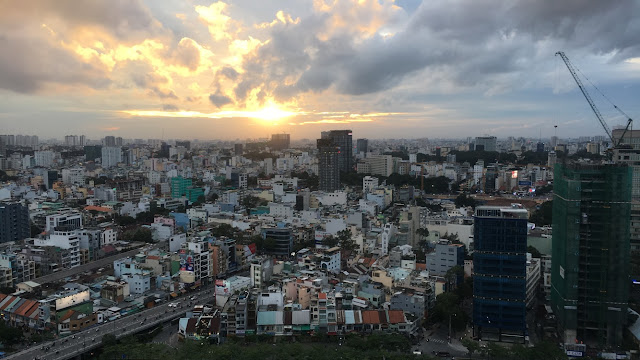Starting a gap year is a bit daunting. Suddenly, you have a
whole year totally under your control, shaped by your choices and funded by
your work. Before, life was determined by school, holidays and family. Now it’s
a year for you! In this post, I’m going to go through some of the main aspects
and things to think about when planning a year out. I did mine 2 years ago and it
was the best year of my life, hopefully this will help some of you plan yours…
So first things first,
1. MAKE A LIST OF POSSIBILITIES
The best thing about planning a year out is the things you
could do and the possibilities that lie before you. (Cringe, but true.) Make a
list of anything you’re interested in doing, it doesn’t matter right now about
logistics, money etc, just get it down on paper! I remember writing things
like: a ski season, work in Australia, go travelling somewhere new/outside of
Europe, camp America, volunteering abroad… At first, it’s just brainstorming
big things that you want to do in your year.
2. MAKE A LIST OF SMALLER/DIFFERENT GOALS
The other amazing thing about a year out is having the time
to focus on goals you might not have had time for before. Learning a language,
musical instrument, learning how to cook, starting a blog or YouTube channel.
These personal development projects are so important but often get ignored at
school, especially during A levels when all your time and energy goes into
revising 3 very specific subjects. So think about things you want to achieve in
your year. These are things you can do in your down time, while travelling or
hobbies that you might want to pick up.
3. SMALLER PROJECTS
If you spend most of your year abroad, adventuring, that’s
great! However, for a lot of us, that’s not economically or logistically
possible. So it’s a good idea to think of some smaller projects that you want
to work at/do while you’re at home (probably working). It really helped me to
feel like I was doing stuff, even while I was still at home. For example, the
first thing on my list was redecorating my room. I had wanted to for ages, but
revision and exams stopped any progress. So in my spare time, between shifts, I
repainted my room myself and reorganised the furniture to spruce it up a bit.
4. LOGISTICS
This is a less fun, but equally important step when planning
a gap year. Think about what you can realistically do within both your time
limit and budget. An easy example for time was that I had both a ski season and
working in Australia on my list. I mapped out where these might fit in a year
and, as I wanted to be in Australia in the summer, these two overlapped. Summer
in Australia is winter (and therefore skiing season) in Europe. That meant that
I had to chose. After doing a bit of research, I found that working in Australia
required much more money initially than skiing and I have always loved skiing
so for me that was an easy choice. Camp America has never properly interested
me, so I decided I wanted to travel in the summer, which is the time that camp
America runs. Clearly, these choices are also very interlinked with budgeting
and money management.
5. BUDGETING
A crucial one that has already cropped up a little,
budgeting your year is possibly THE MOST important thing to do before embarking
on multiple schemes and projects. The harsh reality is that you probably won’t
be able to afford everything and will have to spend some time building up your
savings before jetting off. I worked full time at the job I had over A levels
for the 3 months before ski season. I wasn’t going out much as my friends were
all at university, I was lucky enough to not have to worry about rent or bills.
Therefore pretty much all my earnings went immediately into savings. I mapped out
how much I would need for different things, primarily focusing on how much I
would need for travelling after I got back from season, and how much I would
need to have in my bank when I went to university the next year. Saving for
travelling is all well and good, but if you then blow your savings within a
year with no back up, what now? I think one of the most important things about
years out is learning independence. This is done through travelling without
your parents and organising trips and jobs, but also becoming financially independent.
Yes, I was lucky enough to not have to pay rent to my parents, but all the
money for ski season, travelling and then uni last year was made up by me
working.
6. HAVE FUN
Okay so the last one was a little serious, but most
important is to use this time to experience things you have always wanted to or
may not get a chance to once you’re in a full time job or at university. As I
said, I had an absolute blast on my year out and (as cringe as it sounds), met
friends for life. I can’t recommend it highly enough.
So that’s about all for now, I know I have been a bit vague
with numbers and advice because everyone’s year is different. If you want me to
write in more detail about any of my experiences (ski season, travelling,
working abroad, savings!), just let me know and I will get on it.
As always, thanks for reading,




Having a budget is so important, you need to know how much money you will need and save as much as possible!
ReplyDeleteLove, Amie ❤
The Curvaceous Vegan
Exactly! It's all good making loads of plans but you've got to actually be able to fund them, which is normally the hardest part :(
DeleteLaura x